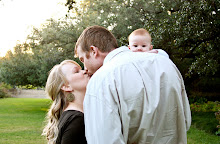Whether you know it or not, your birth can be dramatically different depending on the caregiver you choose and place you decide to birth. Will you pick an OB or Certified Nurse Midwife and have you baby at the hospital? Or perhaps you would like to have your baby at home with a direct-entry midwife and a doula by your side.
I hope this post will help you understand the differences and debunk any myths you have about "unsafe" birth choices.
OBSTETRICIANS
OB's or OB/GYN's have completed medical school and four years of obstetric and gynecology residency. They have received specific instruction in gynecological surgery, women's health care, prenatal care, treatment for complicated pregnancies, vaginal delivery, and cesarean sections. The focus of an OB is to ensure you and your baby have come out healthy after the birth. They are not necessarily helping you to have a "birth experience". Many women choose an OB because of their high level of education and their ability to handle complications* should they arise.
*Please note that serious complications can occur due to procedures such as a medical induction, medications given during birth, and cesarean section, just to name a few.
FAMILY DOCTORS
Family doctors have also completed medical school where they learn to provide care for children, adults, and how to deliver babies. FD usually work with uncomplicated pregnancies and will consult and OB should a complication arise. Unless you live in a rural area or smaller town, you would most likely have access to an OB, but if not, a Family Doctor may be your only choice within a reasonable traveling distance.
CERTIFIED NURSE-MIDWIVES
CNM's are advanced-practice nurses who have two to three years of education in a nursing program. They have training in prenatal care, women's reproductive health, and childbirth. They care for women with uncomplicated pregnancies and will collaborate with an OB should a problem arise. Many CNM's are interested in helping women have a "birth experience" they desire. They work in hospitals or birthing centers.
CERTIFIED MIDWIVES
CM's have must pass the same national certifying exams as CNM's, but they are not nurses. They may have other medical training or a degree in a health-related field. They are for uncomplicated pregnancies and attend mostly hospital births. Only a few states recognize CM's. For more information about CM's in your state, contact your state health department.
DIRECT-ENTRY MIDWIVES
DEM's have midwifery training, but are not nurses. Their education varies and many of these midwives train with other established midwives who attend home births or work from a free standing birth center. They are familiar with the unique process of out-of-hospital births and are skilled to care for you and your baby during birth.
There are three kinds of Direct Entry Midwives:
- Licensed Midwife: attended a direct entry midwifery school and passed a state exam. Many licensed midwives will take payment from your health insurance provider. They care for uncomplicated pregnancies and attend out-of-hospital births. Many of them have a recognized relationship with a physician should a complication develop prenatally or during labor.
- Lay Midwife: trained by apprenticing with an experienced midwife. She attends home births and may or may not have a back up physician. She is not regulated or certified by the state, so you must do your own research into her skills and background.
- Certified Professional Midwife: is a licensed midwife and recognized nationally for her certification. She undergoes a lengthy process of establishing her experience and demonstrating her skills. She must keep her certification current by completing continuing education every three years.
When you choose to birth at the hospital, you will be assigned a nurse for your labor. She may have one to three patients that she is monitoring at once depending on the staffing and number of patients that day. Nurses vary in their interests and experience. Some may be very supportive of natural birth and others may be more comfortable with medicating and high-tech monitoring.
DOULAS
A doula, or professional labor assistant, is trained to emotionally and physically support a laboring woman and her partner. Doulas know a variety of comfort measures such as massage, positioning for comfort, visualizations, and relaxation techniques. A doula can help you to have the "birth experience" you desire. She can also help you in understanding what may come during birth and give you the information you need to make informed choices about your birth.
~~~~~~~
Of course, there are many other types of people that I recommend to have the ultimate pregnancy and birth you want such as: yoga instructors, childbirth educators, nutritionists, fitness instructors, chiropractors, lactation consultant, and acupuncturists.Hoping you have a wonderful pregnancy, birth, and beyond!





1 comment:
Great information....just wanted to add that CNM's do homebirths as well.
Post a Comment